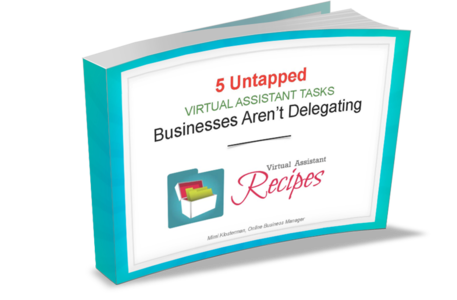Hosting a virtual event is a fantastic way to build your business and your bottom line. Once you’ve completed a successful event, you’ll want to repeat the process. With that goal in mind, it makes sense to set yourself up for success.
Don’t wait until after you’ve hosted an event to start planning the next one. Use your first virtual event as a template. You can then simply plug in the necessary pieces. You then have everything you need to host many live events with predictable success.
#1 Create a Strategy and a Plan
Decide what you want to accomplish with your virtual event and outline the steps you need to make your goal a reality. For example, do you want to build your list, increase your sales or create a new stream of passive income? Identify your goals from the beginning. In the future, you’ll be able to use this strategy as something you can either repeat or modify for different goals.
#2 Document Your Processes and Keep Copies of Everything
Document every step of your process. What tasks are required to achieve your goals and what steps do you take to achieve those tasks? Write everything down. By documenting your processes and systems you make it possible for someone else to literally create your future live virtual events for you. They can simply follow your steps.
You also make it easier on yourself because you don’t have to reinvent the wheel each time you decide to host an event. Keep copies of your content too. You might find that the formats of the content can be used as templates for future events.
#3 Use Technology and Automate Your Virtual Event
This is one of the areas where a virtual assistant or a team of assistants can help you. If they’re familiar with hosting live events then they’ll be able to guide you to the best technology and they’ll know how to use it. You can use technology to automate everything from hosting and recording the event to tracking clicks and growing your list.
#4 Leverage the Skills of Others (And Document What They Do Too)
Identify the specialty skills you need to create a great live event. For example, do you need a copywriter? Do you need someone to create graphics for your event or someone to set your event up on your chosen technology? Identify the skills and tasks and then find people who specialize in that area. Have them document their processes and systems as well so anyone can jump in and repeat the process should your contractor not be available next time.
#5 Test and Track – Discover What Was Wildly Successful and What Needs To Be Tweaked or Eliminated
Last but certainly not least, create systems to test and track your efforts. What worked? What didn’t? This information will help you create future events that will be more successful than the first one.
Finally, organize all of your information in a way that makes it easy for you to use and find when you decide to plan your next event. Good organization, systems, and documentation will help you streamline your events and experience repeated success.

